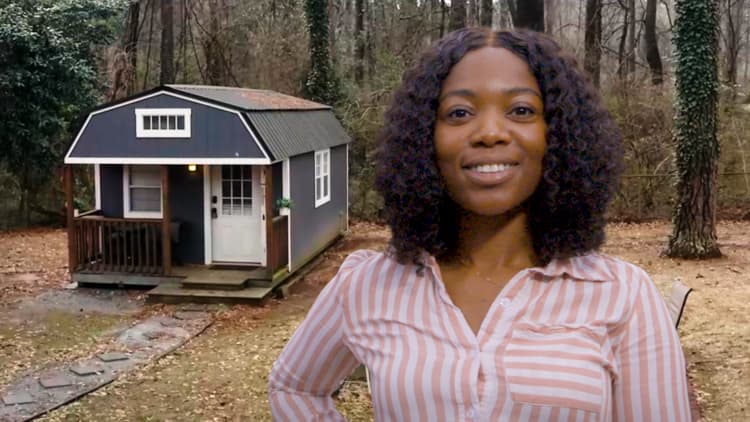In 2001, at 22 years old, I moved out of my mom's basement in Atlanta and into a sublet in the housing projects of Manhattan.
I got a job as a technical support operator making $45,000 a year. When I told my friends and family that I was going to get rich off real estate investing, they laughed at me.
But I proved everyone wrong. I invested a large chunk of my 9-to-5 earnings into real estate. Now, at 45, I'm a self-made millionaire with 366 units in my property portfolio. I earned my first million through unconventional investing methods that took advantage of a strong real estate market.
Here are four cheat codes that can skyrocket your wealth:
1. 'Float' from mortgage to mortgage.
Residential mortgages have some of the lowest down payment requirements and interest rates.
You must live in a property for the first year of ownership to keep the residential mortgage. After that, you often don't need to refinance to turn your home into a rental.
So, you can buy a single-family or multi-family home (up to four units each year) with a residential mortgage and a 3.5% to 5% down payment, then "float" to a new primary residence.
This creates a breadcrumb trail of properties — with inexpensive mortgages — that you can rent out to cover all of your expenses, or even receive cash flow.
If you qualify for a USDA loan, a type of mortgage for low- or moderate-income homebuyers in eligible rural areas, or a VA loan, which is available to service members, veterans and their spouses, you can get up to 100% financing.
2. 'Shift' from room to room.
If you have at least two units, you can maximize your cash flow with short-term rentals by "shifting" from unit to unit, based on vacancy.
List all your units, even the one you live in, on Airbnb, VRBO and other rental platforms. Create a flexible lifestyle and have a "go-bag" of your must-have items so you can "shift" between your short-term rentals based on wherever the vacancy is that night.
A common way to get started is to rent out a spare room in your house, or to park a camper or RV in the driveway as a short-term rental option for guests (or for yourself when your primary unit is booked).
3. Achieve zero housing.
In 2022, the average renter put 30% of their income towards rent. If you get rid of this expense, you can significantly increase your wealth.
Set a goal to have your housing pay for itself. For example, you can take on a roommate, or rent out your basement as storage space, or rent out a parking space to a neighbor, or use your fenced yard as a dog run.
Use the financial boost to cover your mortgage or invest in cash-generating properties.
4. Learn from your landlord.
If you don't have the money to buy real estate, ask your landlord if you can sublease your current rental to a higher-paying tenant as a short-term or mid-term rental, then split the proceeds.
Or, if your landlord is looking for a property manager, partner with them to manage their vacancy as a short-term rental in exchange for a portion of the proceeds. If you already have a strong relationship, you may not need previous management experience to work together.
Learning the ropes before you buy can better prepare you for life as a landlord. This networking can also lead to future partnership opportunities, like splitting a property investment.
Alan Corey is a podcaster and real estate entrepreneur. He co-founded House Money Media, a company dedicated to launching first-generation real estate investors, and is the author of "House FIRE: How to Be a Red-Hot Real Estate Millionaire With a Wealth of Time and Money to Burn." Follow him on Twitter.
Don't miss:
- Early retiree says breaking these 6 ‘society rules’ helped him save $1 million: ‘I wasn’t born rich’
- This 32-year-old grosses $431,000 a year from his real estate investments—while traveling and living in a converted van
- 28-year-old pays $62 a month to live in a dumpster he built for $5,000—take a look inside
Want to be smarter and more successful with your money, work and life? Sign up for our new newsletter!

Get CNBC's free Warren Buffett Guide to Investing, which distills the billionaire's No. 1 best piece of advice for regular investors, do's and don'ts and three key investing principles into a clear and simple guidebook.


